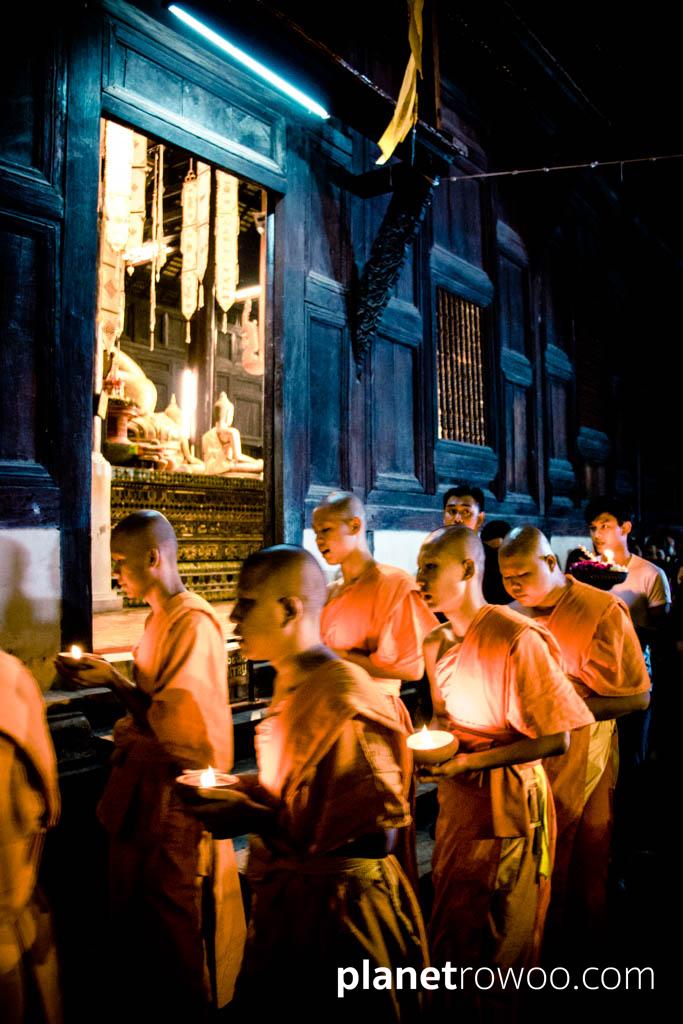- Chiang Mai – A New Beginning
- Ping Nakara Boutique Hotel, Chiang Mai
- Chiang Mai – The Return / The BLISS Condo
- The Marndadee Heritage, Chiang Mai
- Lisu Lodge, Chiang Mai Province
- PLAY Condo, Chiang Mai
- Mae Ngat Dam Floating Houses, Chiang Mai
- Loy Krathong / Yee Peng Festival, Chiang Mai
- 99 The Heritage Hotel, Chiang Mai
- Makha Bucha Day, Chiang Mai
- The Nimmana Condo, Chiang Mai
- Chiang Mai Lockdown Food & Drink Favourites
Makha Bucha Day
Makha Bucha Day (also known as Magha Puja), is one of the most important festivals in the Theravada Buddhist calendar. It’s a public holiday in Thailand so banks and government offices are closed, and for 24 hours you can’t (officially) buy alcohol.
The festival is celebrated nationwide in Thailand as well as in the neighbouring countries of Cambodia, Laos and Myanmar, and also in Sri Lanka.
This would be my first experience of Makha Bucha Day. So I was looking forward to learning more about it and observing this special day during my time in Chiang Mai.
When is Makha Bucha Celebrated?
The term “Makha” comes from the word “Magha” in Pali and translates to the third month in the Thai lunar calendar (Pali is the sacred language of the religious texts of the Theravada strand of Buddhism). “Bucha” also derives from the Pali language, this time from the word “Puja” – which means “to honour”.
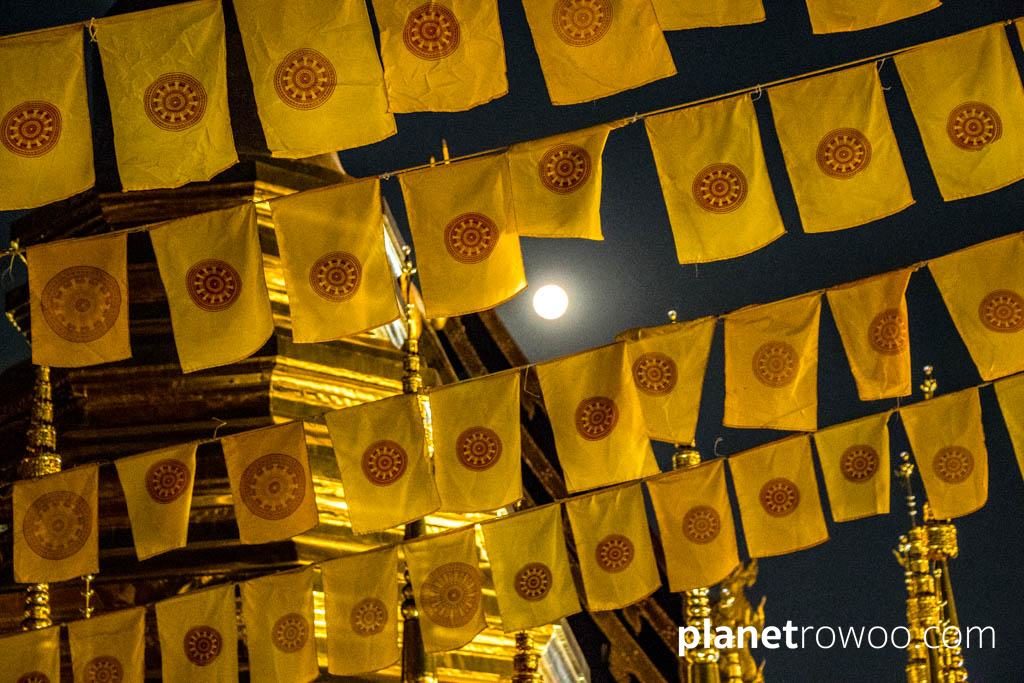
So Makha Bucha is a celebration in honour of the full moon day of the third lunar month. This usually falls in February or March, but the exact date varies depending on the lunar cycle.
Here are the dates for 2019 thru 2021;
| Year | Date | Day | |
| 2019 | 19 Feb | Tues | Makha Bucha Day |
| 2020 | 8 Feb | Sat | Makha Bucha Day |
| 10 Feb | Mon | Makha Bucha Holiday | |
| 2021 | 26 Feb | Fri | Makha Bucha Day |
What does Makha Bucha Commemorate?
On this day of the full moon of the third lunar month, nine months after Buddha’s enlightenment, 1,250 monks gathered, without being summoned, to hear the Lord Buddha preach.
Makha Bucha commemorates this meeting when Buddha delivered his core teachings. The teachings were called Ovada Patimokkha and were a summary of Buddhism: cease from evil, do good, and cleanse your mind.
The basic tenants of the monastic order, or Sangha, were established. The Buddha subsequently ordained these monks and the day is marked as the beginning of the spread of Buddhism.
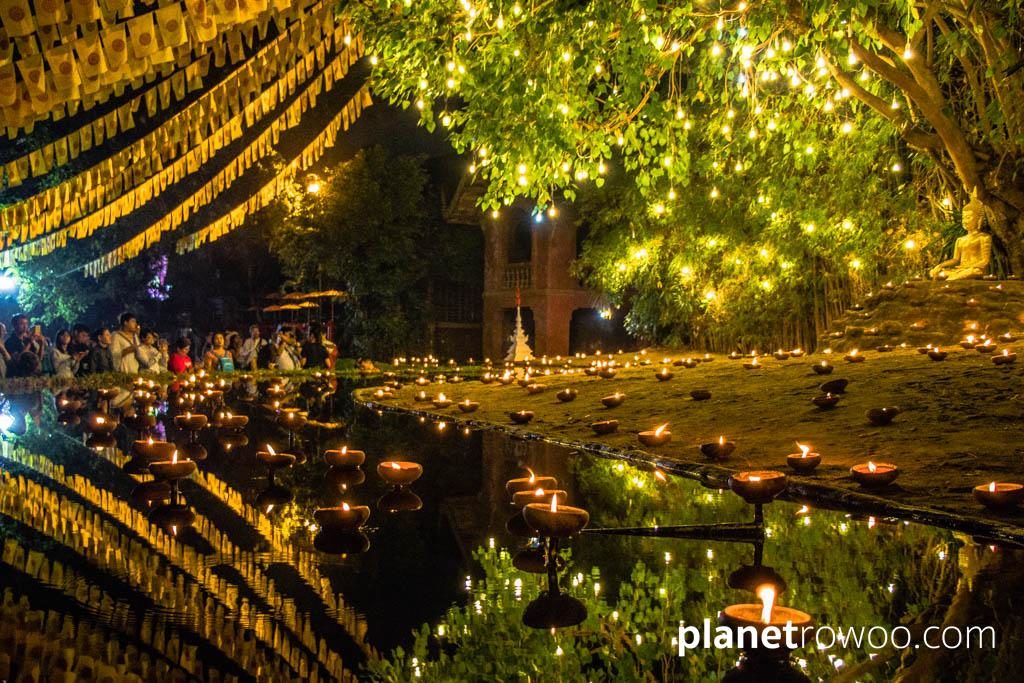
45 years later, on this same day, Buddha made the decision to reach “Nirvana”; where the mind departs from the body and the body dies. Three months later he achieved this, and today this is marked by Visakha Bucha Day, the most important of Buddhist celebrations.
Makha Bucha in Chiang Mai
You can witness and join in with the activities at any of the main temples in Chiang Mai. This year, on my first Makha Bucha, I enjoyed the evening proceedings at my favourite temple, Wat Phan Tao in the old city (where I’d previously witnessed the Yee Peng ceremony) and also in the neighbouring temple, Wat Chedi Luang.
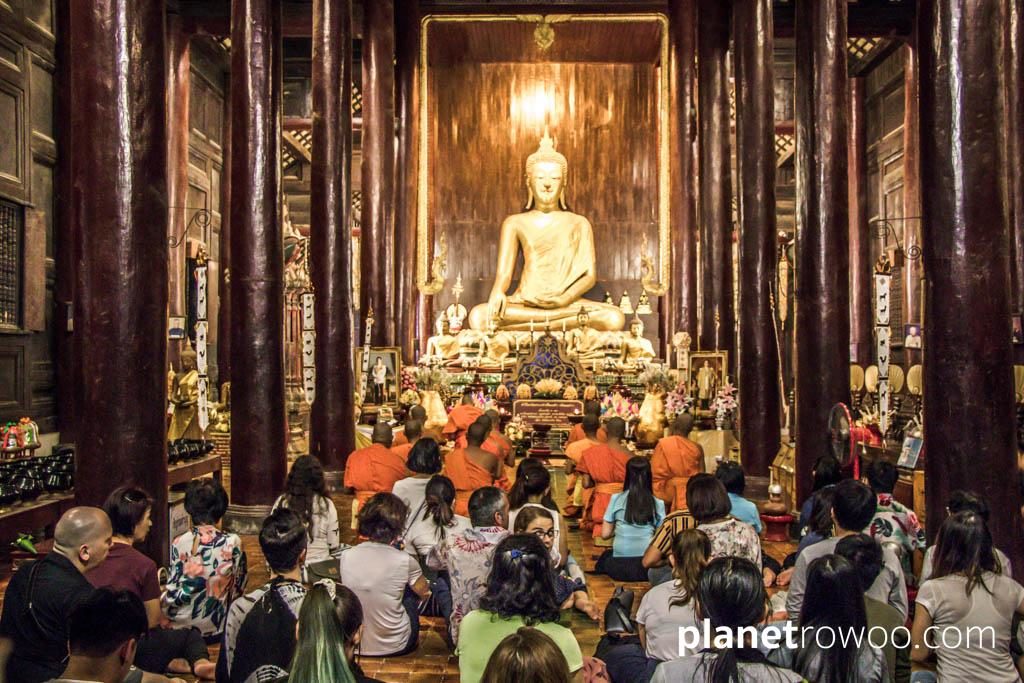
Celebrations follow a similar pattern for Thai Buddhists throughout the country. The day begins with making merit by offering alms to the monks. The spiritual aims are to purify one’s mind, not to commit sins and do only good. Many will abstain from alcohol for the day.
In the evening, the temples are busy and monks chant and pray with the people. Some who visit wear white robes, which means they will stay with the monks to pray for a number of days.
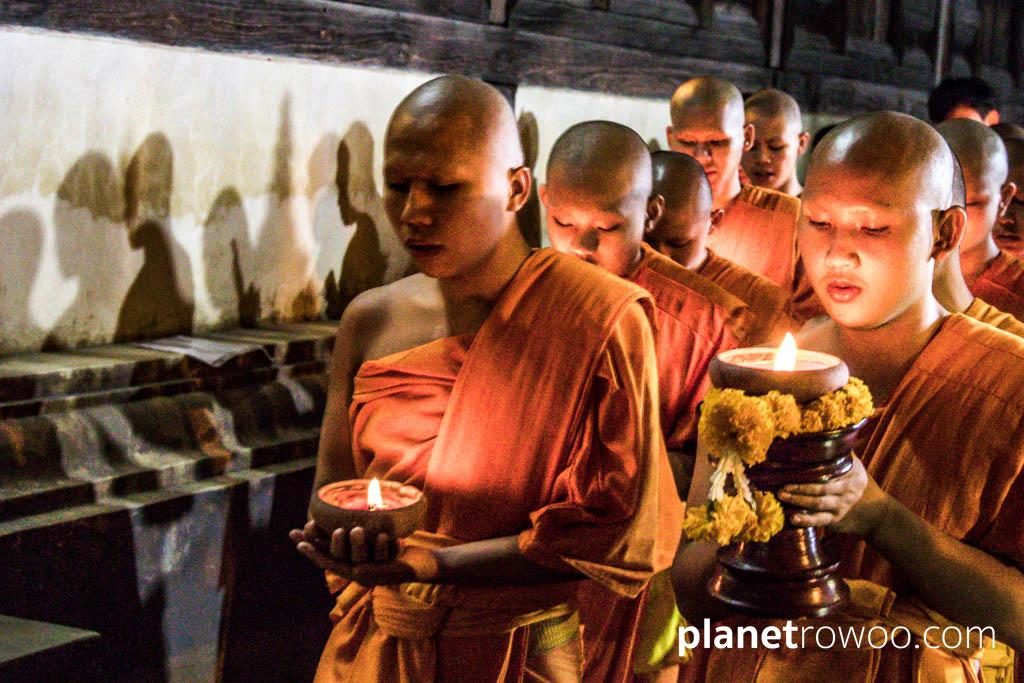
One of the highlights of the evening is the wian tian candlelight procession (wian means circle and tian, candle). Monks with flowers, a candle and incense in their hands walk around their temple or pagoda clockwise three times while chanting and praying. Each revolution is for one of the Three Jewels of Buddhism: the Buddha (The Teacher), the Dharma (The Teaching), and the Sangha (The Buddhist Community).
The monks are followed by Buddhist devotees who make merit by performing the same action. Afterwards, the people offer their candles, flowers, and incense to Buddha statues.
Gallery
Beliefs
Makha Bucha is a rich cultural and religious experience and everyone is welcome to join in. I always feel it a privilege to be able to observe or take part in another culture’s religious celebrations. I’m not religious myself, but I’m fascinated by religion and spiritual beliefs. Buddhism in particular. It’s the only religion I’ve ever had a leaning to.
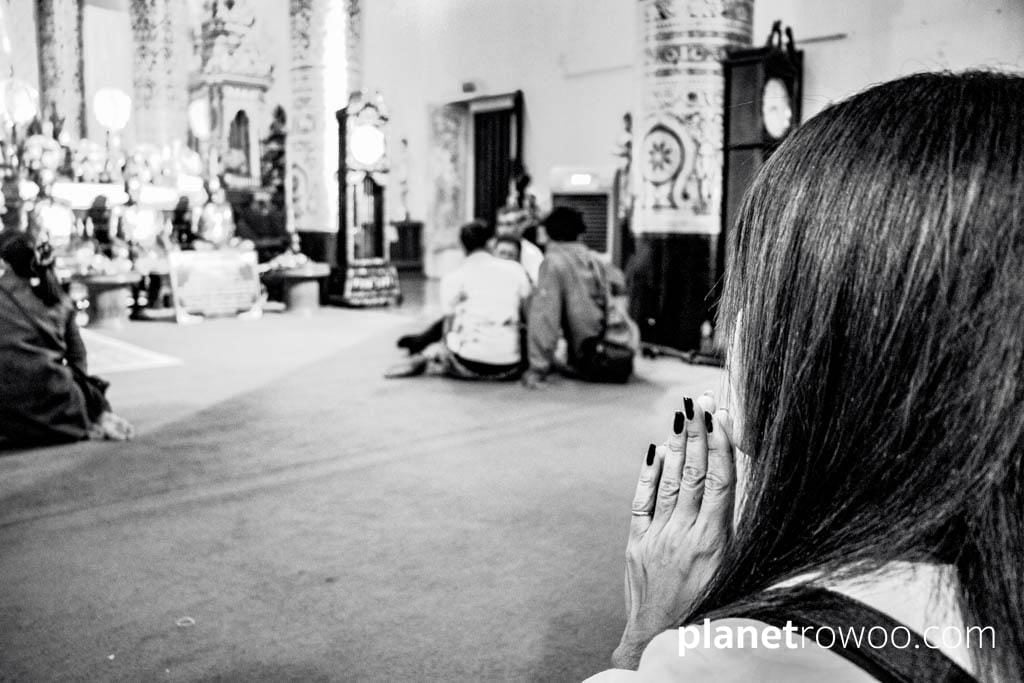
Too Dry?
If you go pale at the thought of no alcohol for 24 hours then don’t despair. Most hotels will continue to offer alcohol despite it being a Buddha day. Or just ask a tuk-tuk driver, and they’ll most likely be able to take you somewhere that might be serving discreetly.
Top image: Monks perform the wian tian candlelight procession at Wat Phan Tao
